
Elizabeth Canning
@canning.bsky.social
Social Psychologist. Associate Professor of Psychology at Washington State University in Pullman, WA. Researches motivation and social-psych interventions to reduce inequality. On sabbatical in Berlin as a Fellow of the @wiko-berlin.bsky.social
Reposted by Elizabeth Canning
What happens when a lottery determines which proposals for third-party funding get reviewed?
Details here (#OpenAccess and fresh off the press): doi.org/10.1038/s414...
Details here (#OpenAccess and fresh off the press): doi.org/10.1038/s414...
November 7, 2025 at 8:23 AM
What happens when a lottery determines which proposals for third-party funding get reviewed?
Details here (#OpenAccess and fresh off the press): doi.org/10.1038/s414...
Details here (#OpenAccess and fresh off the press): doi.org/10.1038/s414...
Reposted by Elizabeth Canning
Kudos to Leiming Ding on this super cool study showing that STEM college students' cost perceptions interacted with early assessment performance to predict dropout intentions. #PsychSciSky #AcademicSky #EduSky

Using Students’ Motivation and Early Course Performance to Examine STEM Dropout: A Survival Analysis Approach - Leiming Ding, Erin Windsor, Jeffrey A Greene, Robert D Plumley, Sirui Ren, Nancy Stachur...
Despite extensive efforts to reduce STEM (science, technology, engineering, and mathematics) dropout, the United States still faces a shortage of STEM professio...
journals.sagepub.com
November 3, 2025 at 8:23 PM
Kudos to Leiming Ding on this super cool study showing that STEM college students' cost perceptions interacted with early assessment performance to predict dropout intentions. #PsychSciSky #AcademicSky #EduSky
Reposted by Elizabeth Canning
New in @pnas.org.
Preschool teachers were less likely to accept participation attempts by children from working-class backgrounds, regardless of their perceived language level.
With a great team: @andreicimpian.bsky.social @sebastiengoudeau.bsky.social & Louise Goupil.
doi.org/10.1073/pnas...
Preschool teachers were less likely to accept participation attempts by children from working-class backgrounds, regardless of their perceived language level.
With a great team: @andreicimpian.bsky.social @sebastiengoudeau.bsky.social & Louise Goupil.
doi.org/10.1073/pnas...

September 5, 2025 at 1:21 PM
New in @pnas.org.
Preschool teachers were less likely to accept participation attempts by children from working-class backgrounds, regardless of their perceived language level.
With a great team: @andreicimpian.bsky.social @sebastiengoudeau.bsky.social & Louise Goupil.
doi.org/10.1073/pnas...
Preschool teachers were less likely to accept participation attempts by children from working-class backgrounds, regardless of their perceived language level.
With a great team: @andreicimpian.bsky.social @sebastiengoudeau.bsky.social & Louise Goupil.
doi.org/10.1073/pnas...
Reposted by Elizabeth Canning
Open-access publication alert!! This is a special one; it represents two years of work with an amazing team of researchers, teachers, educational stakeholders, and technology experts to identify infrastructure that would advance equity in STEM education: link.springer.com/article/10.1...

A field-initiated vision of research infrastructure for STEM education - International Journal of STEM Education
STEM education research has historically been under-equipped, relying on standardized tests and questionnaires while other fields deploy space telescopes and particle accelerators. What would happen i...
link.springer.com
October 24, 2025 at 4:39 PM
Open-access publication alert!! This is a special one; it represents two years of work with an amazing team of researchers, teachers, educational stakeholders, and technology experts to identify infrastructure that would advance equity in STEM education: link.springer.com/article/10.1...
Reposted by Elizabeth Canning
New publication! 🤓 This experience sampling study examines how motivational regulation and cost predict students’ momentary motivational conflicts and emotions.

October 13, 2025 at 6:11 AM
New publication! 🤓 This experience sampling study examines how motivational regulation and cost predict students’ momentary motivational conflicts and emotions.
Reposted by Elizabeth Canning
Your LMS clicks say more than you think. 🖱️💭
New research shows that students’ digital traces—like opening readings or requesting hints—can reveal how they self-regulate learning.
#PsychSciSky #AcademicSky #EduSky
🔗 doi.org/10.1037/edu0...
New research shows that students’ digital traces—like opening readings or requesting hints—can reveal how they self-regulate learning.
#PsychSciSky #AcademicSky #EduSky
🔗 doi.org/10.1037/edu0...

October 11, 2025 at 1:10 PM
Your LMS clicks say more than you think. 🖱️💭
New research shows that students’ digital traces—like opening readings or requesting hints—can reveal how they self-regulate learning.
#PsychSciSky #AcademicSky #EduSky
🔗 doi.org/10.1037/edu0...
New research shows that students’ digital traces—like opening readings or requesting hints—can reveal how they self-regulate learning.
#PsychSciSky #AcademicSky #EduSky
🔗 doi.org/10.1037/edu0...
Reposted by Elizabeth Canning
💖This paper has been ~11 years in the making - and probably my favorite project of all time. Thrilled to see it in @pnas.org! I'm so lucky that Zach decided to do a second PhD and join my lab @psychillinois.bsky.social back in 2014 - a fabulous scientist & human being! www.pnas.org/doi/10.1073/...

September 22, 2025 at 2:27 PM
💖This paper has been ~11 years in the making - and probably my favorite project of all time. Thrilled to see it in @pnas.org! I'm so lucky that Zach decided to do a second PhD and join my lab @psychillinois.bsky.social back in 2014 - a fabulous scientist & human being! www.pnas.org/doi/10.1073/...
Reposted by Elizabeth Canning
This special issue "invites submissions on research areas recently de-prioritized and/or de-funded that address or discuss how social cognition approaches can aid in the understanding of these critical societal issues."
Plz consider submitting!
Plz consider submitting!
Social Cognition invites papers for a special issue on disrupted scholarship guest edited by Galen Bodenhausen, Jacqueline Chen, & Franki Kung.
bit.ly/3HkcyBf
bit.ly/3HkcyBf

Call for Papers Indomitable Science: Social Cognition Scholarship amid Disruption.docx
Call for Papers: Special Collection Indomitable Science: Social Cognition Scholarship amid Disruption Deadline for Letters of Intent: October 15, 2025 (https://bit.ly/4mlowtf) Guest Editors: Gale...
bit.ly
August 20, 2025 at 2:02 PM
This special issue "invites submissions on research areas recently de-prioritized and/or de-funded that address or discuss how social cognition approaches can aid in the understanding of these critical societal issues."
Plz consider submitting!
Plz consider submitting!
My new office for the year! I’ll be spending my sabbatical in Berlin as a Fellow of the @wiko-berlin.bsky.social
Excited to read, write, learn, and meet some amazing new people.
Excited to read, write, learn, and meet some amazing new people.

August 13, 2025 at 5:31 AM
My new office for the year! I’ll be spending my sabbatical in Berlin as a Fellow of the @wiko-berlin.bsky.social
Excited to read, write, learn, and meet some amazing new people.
Excited to read, write, learn, and meet some amazing new people.
Reposted by Elizabeth Canning
Now published: Our paper investigating cognitive processes of ingroup favoritism across 20 countries. Free to read (hashtag#OpenAccess) at www.pnas.org/doi/10.1073/pnas.2417456122
PNAS
Proceedings of the National Academy of Sciences (PNAS), a peer reviewed journal of the National Academy of Sciences (NAS) - an authoritative source of high-impact, original research that broadly spans...
www.pnas.org
August 6, 2025 at 7:41 AM
Now published: Our paper investigating cognitive processes of ingroup favoritism across 20 countries. Free to read (hashtag#OpenAccess) at www.pnas.org/doi/10.1073/pnas.2417456122
Reposted by Elizabeth Canning
What do first-year students think about STEM course office hours? How do these perceptions change over time? So excited to share a new paper in the International Journal of STEM Education where we conducted a longitudinal study to find out! 1/7 stemeducationjournal.springeropen.com/articles/10....
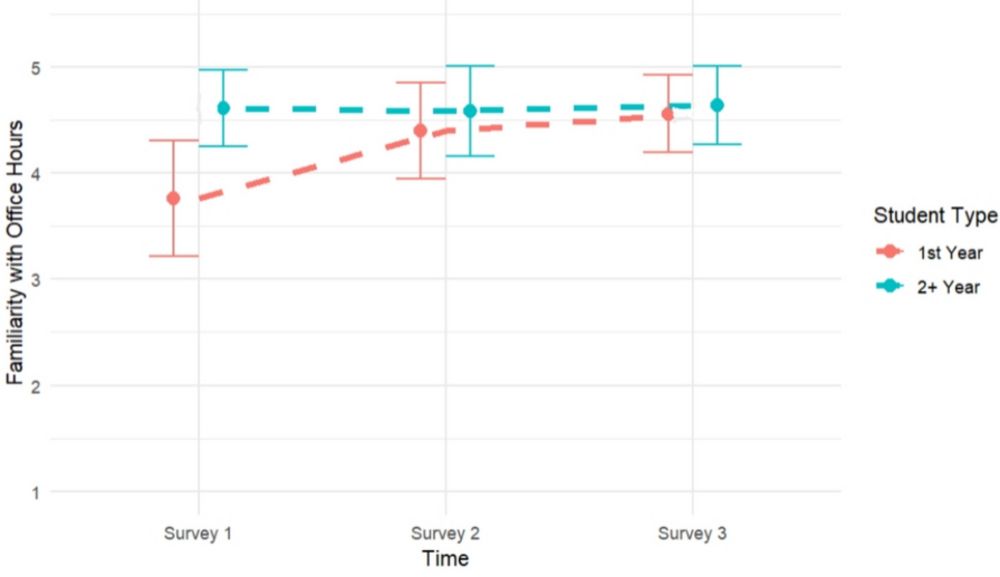
“Asking for help feels like a weakness”: factors shaping first-year students’ expectations of STEM course office hours - International Journal of STEM Education
Background Office hours are one of the most ubiquitous resources for students in STEM courses. However, there has been only limited work examining what students think of STEM course office hours, and ...
stemeducationjournal.springeropen.com
August 5, 2025 at 10:19 PM
What do first-year students think about STEM course office hours? How do these perceptions change over time? So excited to share a new paper in the International Journal of STEM Education where we conducted a longitudinal study to find out! 1/7 stemeducationjournal.springeropen.com/articles/10....
Reposted by Elizabeth Canning
📊 New #PSPB research highlights the impact of the STEP scale - a tool that measures how safe or threatening people perceive different environments to be. Researchers report that environmental cues significantly impact engagement and belonging.
Read more: ow.ly/6mAE50WyCwi
Read more: ow.ly/6mAE50WyCwi

August 1, 2025 at 5:15 PM
📊 New #PSPB research highlights the impact of the STEP scale - a tool that measures how safe or threatening people perceive different environments to be. Researchers report that environmental cues significantly impact engagement and belonging.
Read more: ow.ly/6mAE50WyCwi
Read more: ow.ly/6mAE50WyCwi
Reposted by Elizabeth Canning
As women became a larger share of undergraduate student bodies in the United States over the course of the 20th century, research on gender-related topics increased in science as a direct result.
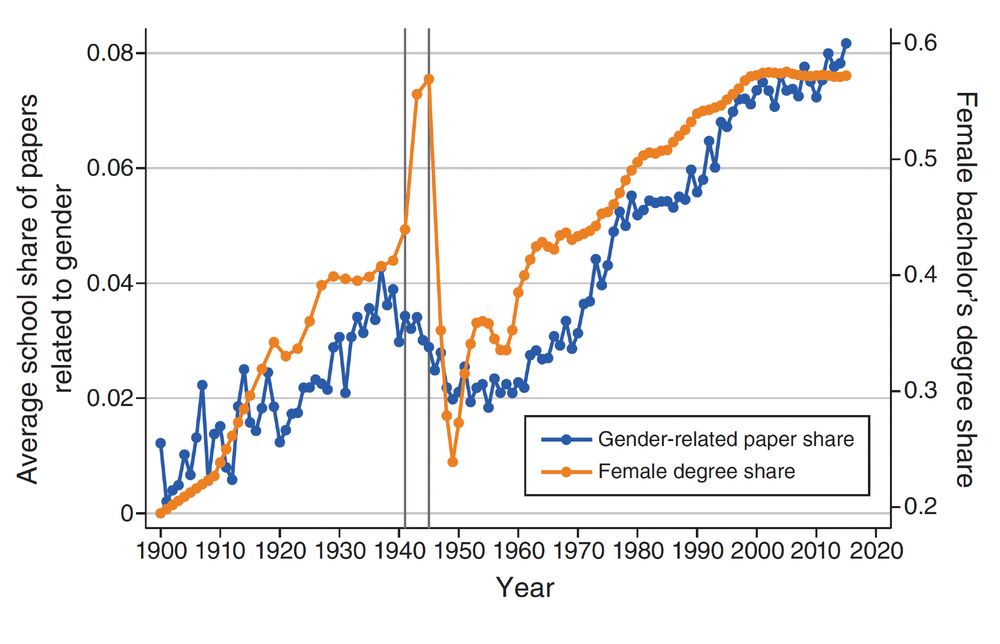
August 1, 2025 at 3:58 PM
As women became a larger share of undergraduate student bodies in the United States over the course of the 20th century, research on gender-related topics increased in science as a direct result.
Reposted by Elizabeth Canning
Thrilled to share our new @NatureComms
paper: "Exploration is associated with socioeconomic disparities in learning and academic achievement in adolescence." www.nature.com/articles/s41... 🧵1/7
paper: "Exploration is associated with socioeconomic disparities in learning and academic achievement in adolescence." www.nature.com/articles/s41... 🧵1/7
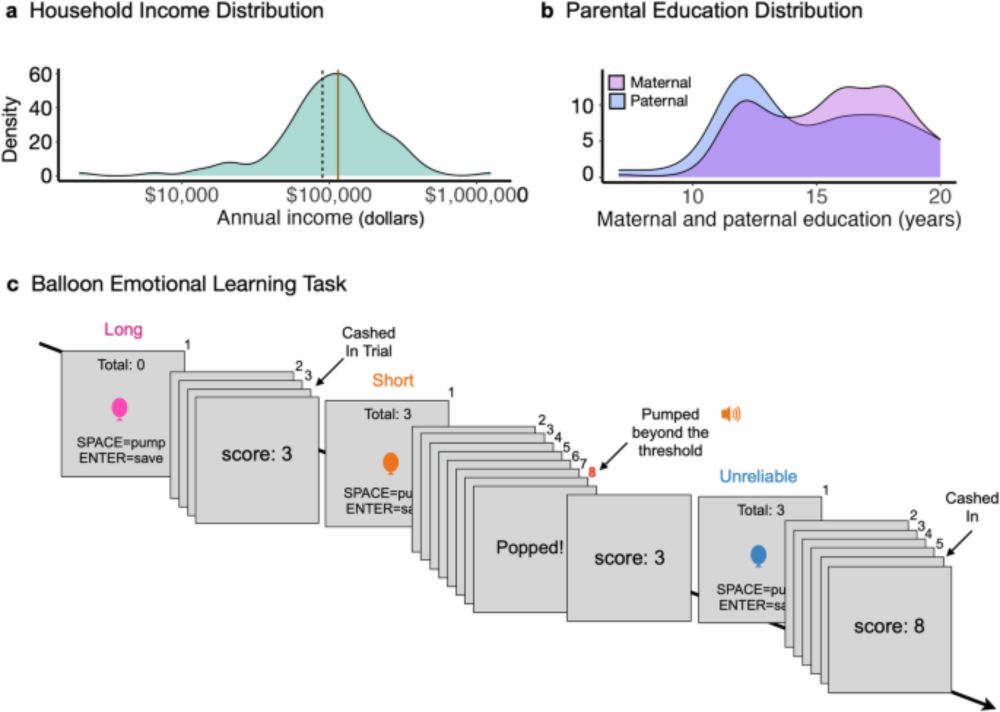
Exploration is associated with socioeconomic disparities in learning and academic achievement in adolescence - Nature Communications
Children from lower socioeconomic backgrounds often show lower academic achievement, commonly linked to limited resources. Here, the authors show that reduced exploration–a behavior tuned for learning...
www.nature.com
July 31, 2025 at 5:11 PM
Thrilled to share our new @NatureComms
paper: "Exploration is associated with socioeconomic disparities in learning and academic achievement in adolescence." www.nature.com/articles/s41... 🧵1/7
paper: "Exploration is associated with socioeconomic disparities in learning and academic achievement in adolescence." www.nature.com/articles/s41... 🧵1/7
Reposted by Elizabeth Canning
Imagine going to the gym and thinking "lifting this heavy weight is hard, so lifting it is not making me stronger." Not how it works, right? Yet that's, in essence, how many students view mental effort and learning. Let's help students embrace mental effort. #PsychSciSky #AcademicSky #EduSky
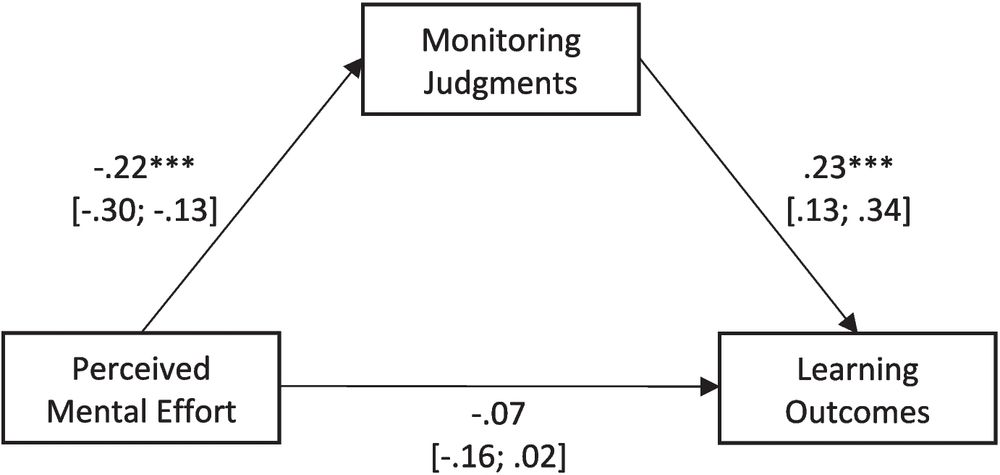
The Relation Between Perceived Mental Effort, Monitoring Judgments, and Learning Outcomes: A Meta-Analysis - Educational Psychology Review
Accurately monitoring one’s learning processes during self-regulated learning depends on using the right cues, one of which could be perceived mental effort. A meta-analysis by Baars et al. (2020)…
doi.org
July 30, 2025 at 5:04 PM
Imagine going to the gym and thinking "lifting this heavy weight is hard, so lifting it is not making me stronger." Not how it works, right? Yet that's, in essence, how many students view mental effort and learning. Let's help students embrace mental effort. #PsychSciSky #AcademicSky #EduSky
Reposted by Elizabeth Canning
New paper out from the Self & Motivation Lab on Safety and Threat in the Environment Perceptions (STEP). The STEP scale assesses people's overall, gut-level impressions of any given space and uniquely predicts engagement, interest, & desire to recruit others
journals.sagepub.com/doi/10.1177/...
journals.sagepub.com/doi/10.1177/...
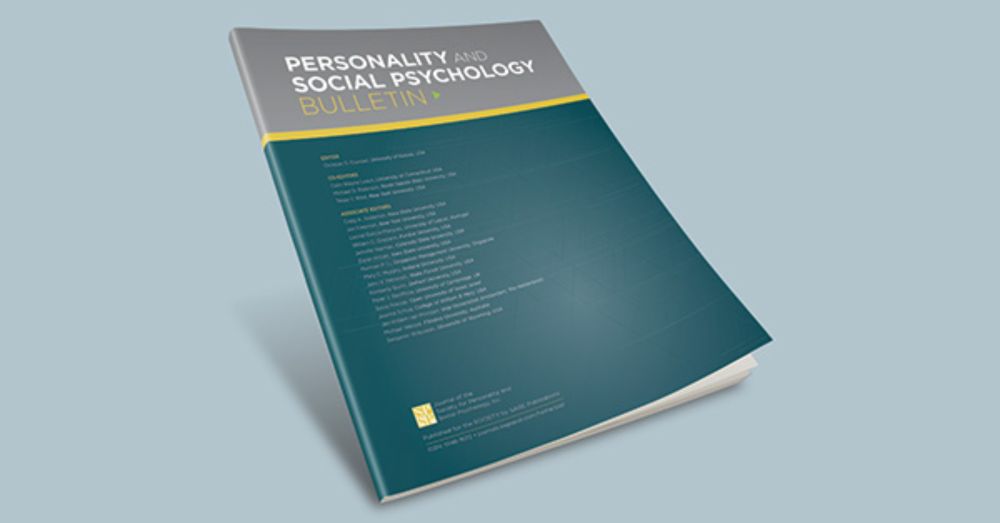
Perceptions of Safety and Threat in the Environment: The STEP Scale - Lora E. Park, Deborah E. Ward, Kristin Naragon-Gainey, Elizabeth A. Canning, Nicole Koefler, Zaviera A. Panlilio, Valerie Vessels,...
The Safety and Threat in Environment Perceptions (STEP) scale assesses perceptions of environments as safe (welcoming, inclusive) or threatening (critical, inti...
journals.sagepub.com
July 29, 2025 at 4:59 PM
New paper out from the Self & Motivation Lab on Safety and Threat in the Environment Perceptions (STEP). The STEP scale assesses people's overall, gut-level impressions of any given space and uniquely predicts engagement, interest, & desire to recruit others
journals.sagepub.com/doi/10.1177/...
journals.sagepub.com/doi/10.1177/...
Reposted by Elizabeth Canning
Our new paper is out! 🎉
Led by Echo Yan (along with @drmuenks.bsky.social), we used a vignette-based experiment to test the effects of perceived instructor and peer field-specific ability beliefs (FABs) on students' motivation, psychological experience, and anticipated behavior:
t.co/WnzqHsvGyn
Led by Echo Yan (along with @drmuenks.bsky.social), we used a vignette-based experiment to test the effects of perceived instructor and peer field-specific ability beliefs (FABs) on students' motivation, psychological experience, and anticipated behavior:
t.co/WnzqHsvGyn
https://doi.org/10.1037/mot0000400
t.co
July 23, 2025 at 8:27 PM
Our new paper is out! 🎉
Led by Echo Yan (along with @drmuenks.bsky.social), we used a vignette-based experiment to test the effects of perceived instructor and peer field-specific ability beliefs (FABs) on students' motivation, psychological experience, and anticipated behavior:
t.co/WnzqHsvGyn
Led by Echo Yan (along with @drmuenks.bsky.social), we used a vignette-based experiment to test the effects of perceived instructor and peer field-specific ability beliefs (FABs) on students' motivation, psychological experience, and anticipated behavior:
t.co/WnzqHsvGyn
Reposted by Elizabeth Canning
🔥Excited to share our new paper in PsychScience! Shout out to best-ever collaborators Aida Davani, @ruyuan-zuo.bsky.social, @shreyahavaldar.bsky.social, Eleanor Chestnut, @mdehghani.bsky.social & @andreicimpian.bsky.social 🧵1/8…
doi.org/10.1177/0956...
doi.org/10.1177/0956...
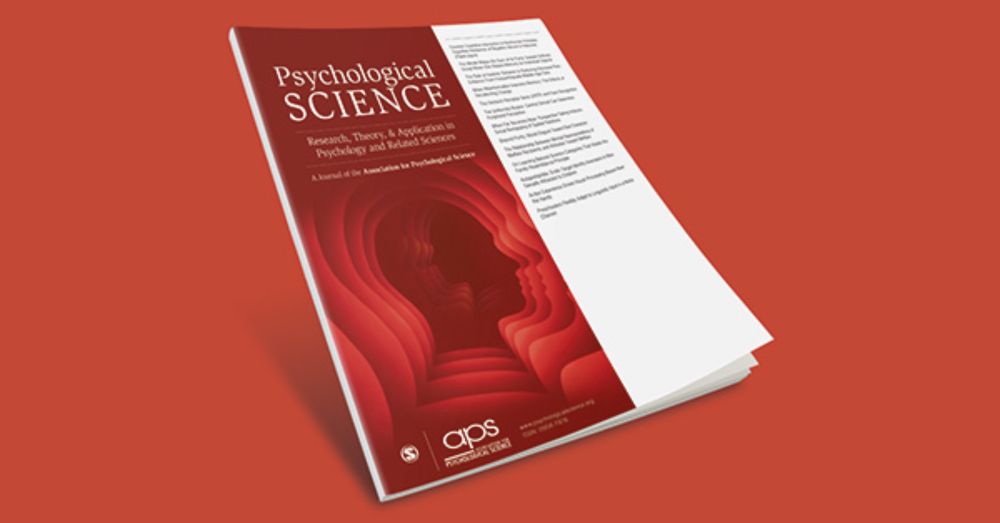
Syntactic and Semantic Gender Biases in the Language on Children’s Television: Evidence From a Corpus of 98 Shows From 1960 to 2018 - Andrea C. Vial, Aida Mostafazadeh Davani, Ruyuan Zuo, Shreya Haval...
Biased media content shapes children’s social concepts and identities. We examined gender bias in a large corpus of scripts from 98 children’s television progra...
doi.org
July 25, 2025 at 9:36 AM
🔥Excited to share our new paper in PsychScience! Shout out to best-ever collaborators Aida Davani, @ruyuan-zuo.bsky.social, @shreyahavaldar.bsky.social, Eleanor Chestnut, @mdehghani.bsky.social & @andreicimpian.bsky.social 🧵1/8…
doi.org/10.1177/0956...
doi.org/10.1177/0956...
Reposted by Elizabeth Canning
How do our brains and bodies support social learning in real time?
We take an ecological and multimodal neuroscience approach to study mutual prediction and social coordination when learning with others.
It took 5 full years for this one! Full open-access pre-print: osf.io/preprints/ps...
We take an ecological and multimodal neuroscience approach to study mutual prediction and social coordination when learning with others.
It took 5 full years for this one! Full open-access pre-print: osf.io/preprints/ps...
OSF
osf.io
July 23, 2025 at 10:31 AM
How do our brains and bodies support social learning in real time?
We take an ecological and multimodal neuroscience approach to study mutual prediction and social coordination when learning with others.
It took 5 full years for this one! Full open-access pre-print: osf.io/preprints/ps...
We take an ecological and multimodal neuroscience approach to study mutual prediction and social coordination when learning with others.
It took 5 full years for this one! Full open-access pre-print: osf.io/preprints/ps...
Reposted by Elizabeth Canning
Cool paper with an great title.
Across the world, boys are much more likely to overestimate their math ability than girls.
People from high SES backgrounds do the same
www.iza.org/publications...
Across the world, boys are much more likely to overestimate their math ability than girls.
People from high SES backgrounds do the same
www.iza.org/publications...
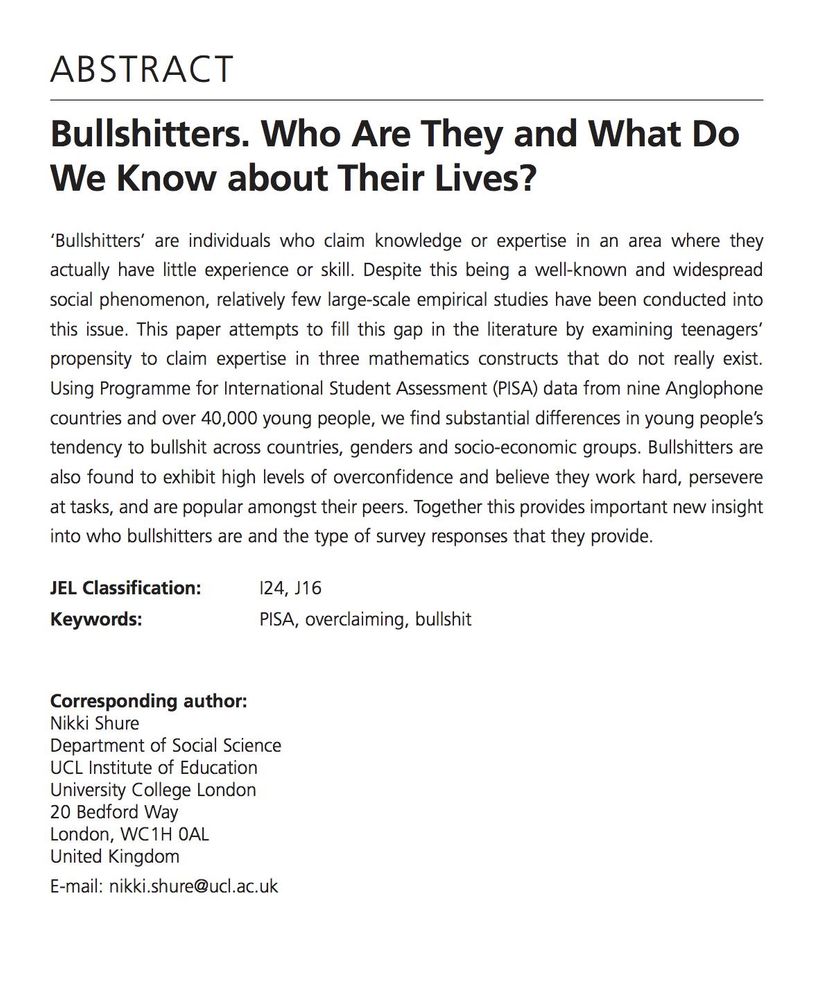
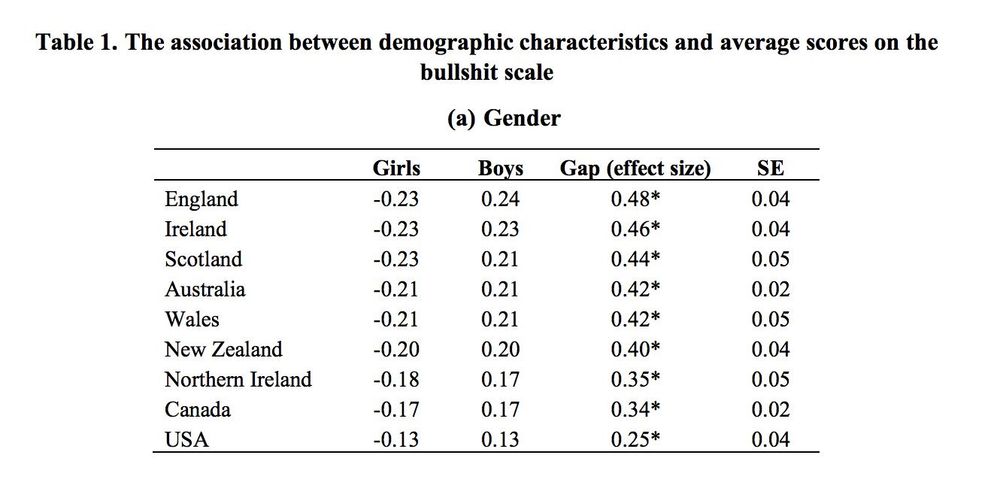
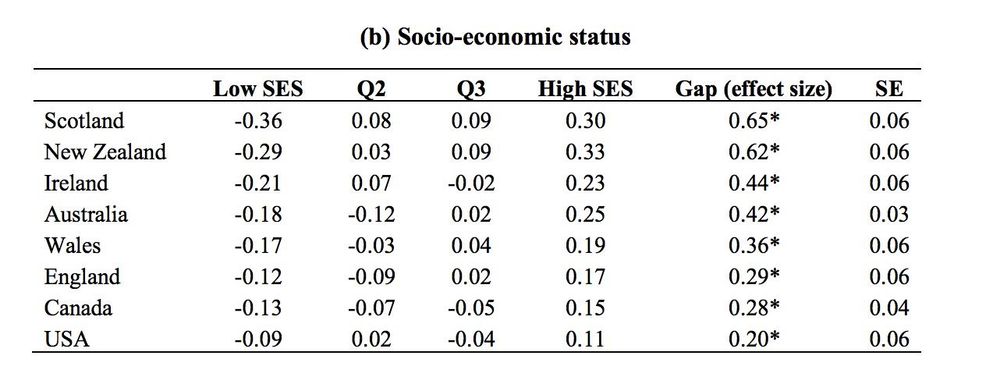
July 17, 2025 at 5:27 PM
Cool paper with an great title.
Across the world, boys are much more likely to overestimate their math ability than girls.
People from high SES backgrounds do the same
www.iza.org/publications...
Across the world, boys are much more likely to overestimate their math ability than girls.
People from high SES backgrounds do the same
www.iza.org/publications...
Reposted by Elizabeth Canning
A meta-analysis of meta-analyses substantiates that teacher-student relationships matter for academic & other outcomes. "Thus, it is central to train teachers to develop positive TSRs to give their students a sense of safety and belonging." #PsychSciSky #AcademicSky #EduSky doi.org/10.1037/bul0...
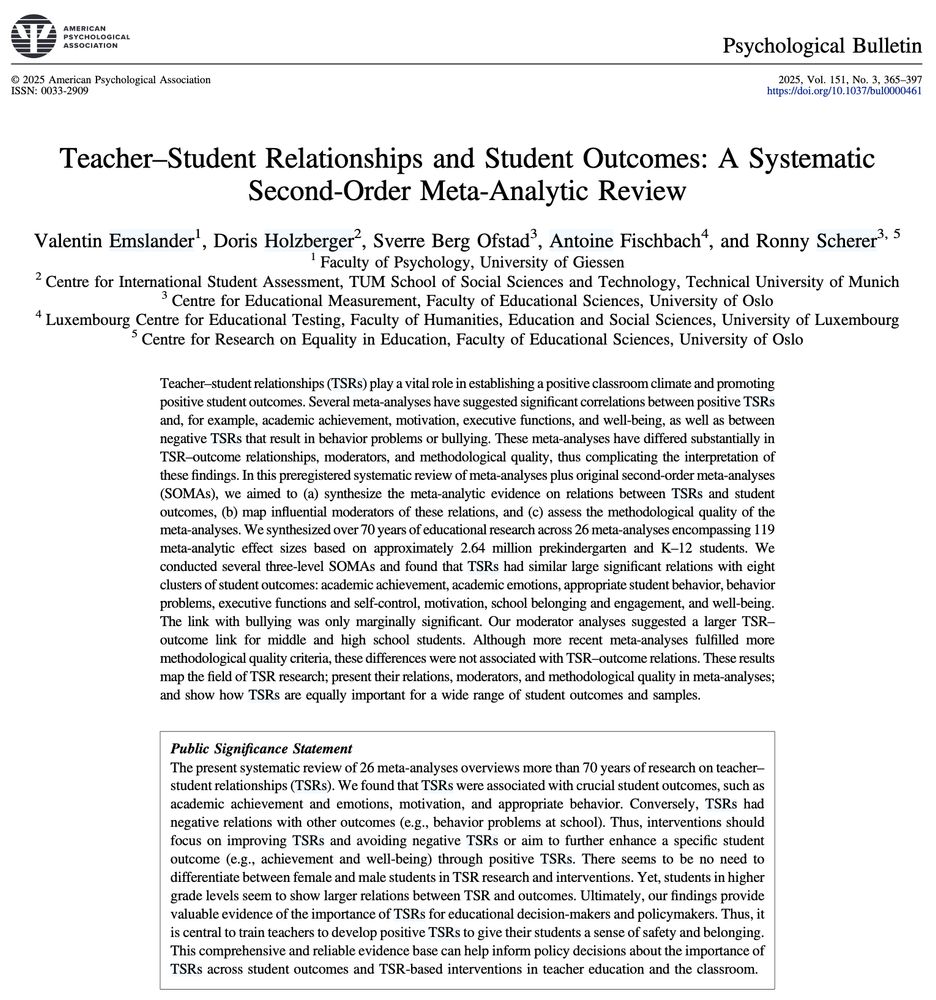
July 14, 2025 at 12:58 PM
A meta-analysis of meta-analyses substantiates that teacher-student relationships matter for academic & other outcomes. "Thus, it is central to train teachers to develop positive TSRs to give their students a sense of safety and belonging." #PsychSciSky #AcademicSky #EduSky doi.org/10.1037/bul0...
Reposted by Elizabeth Canning
2️⃣ new papers to share! First is a paper in CBE-Life Sciences Education led by former undergrad Gabby Dauber '24, examining student motivations and experiences in STEM course office hours (OH). She conducted interviews with students about their knowledge of and 1/5 www.lifescied.org/doi/10.1187/...

Factors Influencing Student Motivations and Experiences in STEM Course Office Hours | CBE—Life Sciences Education
Office hours are a part of nearly all science, technology, engineering, and mathematics (STEM) courses, with many academic and affective benefits for students who attend. However, despite their ubiqui...
www.lifescied.org
June 2, 2025 at 4:59 PM
2️⃣ new papers to share! First is a paper in CBE-Life Sciences Education led by former undergrad Gabby Dauber '24, examining student motivations and experiences in STEM course office hours (OH). She conducted interviews with students about their knowledge of and 1/5 www.lifescied.org/doi/10.1187/...
Reposted by Elizabeth Canning
🚨🚨🚨 New publication alert! We took a look at students' reported costs in chemistry, statistics, and English composition and examined how they differed over time, across courses, and by gender! @ecallen.bsky.social
www.researchgate.net/publication/...
www.researchgate.net/publication/...
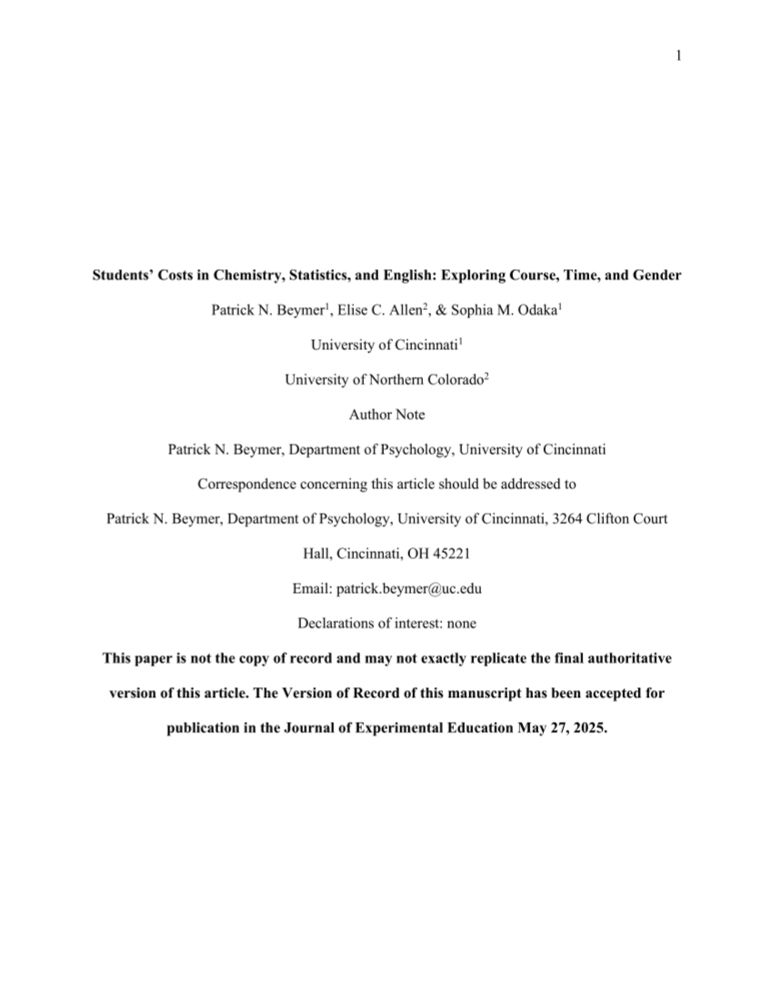
(PDF) Students' Costs in Chemistry, Statistics, and English: Exploring Course, Time, and Gender Author Note
PDF | Situated expectancy-value theory posits that students' academic outcomes are influenced by their expectancy beliefs and the value they place on... | Find, read and cite all the research you need...
www.researchgate.net
May 29, 2025 at 3:48 PM
🚨🚨🚨 New publication alert! We took a look at students' reported costs in chemistry, statistics, and English composition and examined how they differed over time, across courses, and by gender! @ecallen.bsky.social
www.researchgate.net/publication/...
www.researchgate.net/publication/...
Reposted by Elizabeth Canning
Since 1954, "The Handbook of Social Psychology" has been the field’s most authoritative reference work, and today is the launch of the 6th edition. Best news? The HSP is now open-access—free to read, download, and share.
the-hsp.com
the-hsp.com
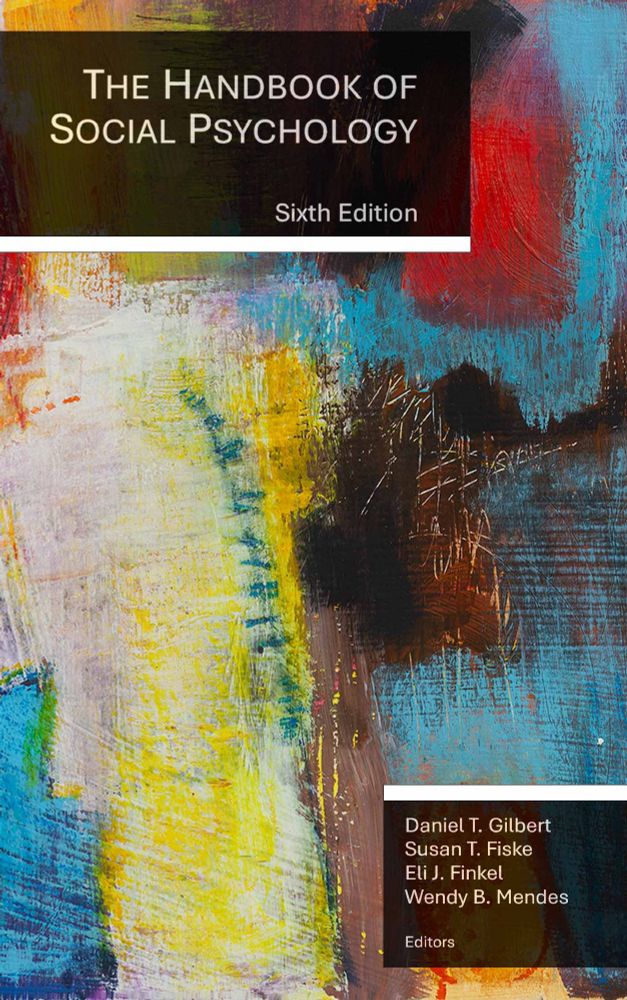
May 19, 2025 at 5:02 PM
Since 1954, "The Handbook of Social Psychology" has been the field’s most authoritative reference work, and today is the launch of the 6th edition. Best news? The HSP is now open-access—free to read, download, and share.
the-hsp.com
the-hsp.com

